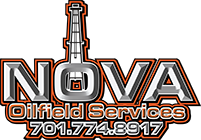Renting an excavator is ideal for those who need to perform heavy-duty tasks such as digging foundations, grading land, or trenching. However, before signing the rental agreement and operating the equipment, you should consider a few things. That way, you get the right machine for your needs and use it safely and efficiently.
This article will provide some tips on what to know before renting an excavator.
1. Determine Your Needs
Think about the type of work you need to perform, the size and depth of the excavation, and the terrain where the work will occur. This information will help you choose the right excavator for your needs. Excavators come in different sizes and configurations, each designed for a specific type of work. For example, a mini-excavator is ideal for small-scale projects and tight spaces, while a larger excavator is better suited for heavy-duty tasks.
2. Consider the Rental Period
The rental period is another important factor to consider when renting an excavator. You should determine how long you will need the equipment and plan accordingly. Some rental companies offer daily, weekly, or monthly rates, so choose the rental period that best fits your needs and budget. Keep in mind that renting an excavator for a longer period may be more cost-effective in the long run.
3. Check the Condition of the Equipment
Look for any signs of wear and tear, leaks, or damage, and ensure all the controls and safety features are working properly. If you notice any issues, notify the rental company immediately. You may also need to verify that the equipment has been maintained and serviced regularly to prevent any breakdowns or malfunctions throughout the operation.
4. Verify Insurance Coverage
Excavation work can be dangerous, and accidents can happen even when the utmost care is taken. Therefore, check if the rental company has insurance coverage for the equipment and any potential damages or injuries that may occur during the operation. Also, consider purchasing additional insurance coverage for your own protection.
5. Understand the Operator’s Responsibilities
If you plan to operate the excavator, be aware of your responsibilities and liabilities. Have a valid operator’s license and be trained to handle the specific type of excavator you are renting. It is also imperative to follow all safety protocols and regulations and operate the equipment within its limits. If you are uncomfortable using the excavator, consider hiring a professional operator.
6. Plan for Transportation
Excavators are heavy equipment and require specialized transportation. Make sure you have a plan in place for transporting the excavator to and from the job site. Most rental companies offer transportation services but confirm this beforehand and factor in any additional costs. If you plan on transporting the excavator, ensure you have the necessary equipment and permits to do so legally and safely.
In Summary
Renting an excavator can be cost-effective for completing construction and landscaping projects. Before renting one, consider the project scope, site conditions, rental duration, equipment specifications, operator responsibilities and liabilities, and transportation requirements. Conduct research, compare rental options, and communicate with the rental company to ensure a successful rental experience.
Nova Oilfield Services provides a range of heavy equipment rentals in Williston, ND, to support your construction and landscaping needs. Our experienced team can guide you through the rental process and help you select the right equipment for your project.
Call us today at (701) 774-8917 for more information.








